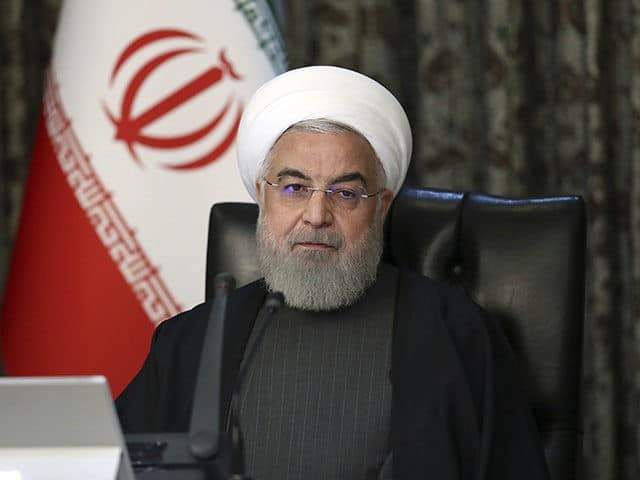Trump: ‘We’ll Be Doing a Snapback’ After U.N. Refuses to Extend Iran Arms Embargo

President Donald Trump responded to Friday’s U.N. Security Council vote against extending the arms embargo on Iran by saying the United States will “be doing a snapback” of sanctions.
The Iranian stock market took a 90,000-point nose dive, with further losses projected, as the prospect of even heavier sanctions loomed over a weak and mismanaged economy.
The 15-member U.N. Security Council voted on Friday against the U.S. proposal to extend the arms embargo, which is scheduled to expire October 18 under the terms of former president Barack Obama’s 2015 nuclear deal with Tehran. The vote was 2-2 with 11 abstentions. Nine votes in favor were needed to extend the embargo, but even if those votes had been cast, Iran’s allies in Russia and/or China would probably have vetoed the resolution.
U.S. Secretary of State Mike Pompeo argued that most nations in the region are well aware of the threat posed by the Iranian regime, and they know it will “spread even greater chaos and destruction if the embargo expires,” but the abstaining nations of the Security Council “chose to ignore them.”
“The United States stands sickened — but not surprised — as the clear majority of council members gave the green light to Iran to buy and sell all manner of conventional weapons,” added U.S. Ambassador to the United Nations Kelly Craft.
“The council’s failure today will serve neither peace nor security. Rather, it will fuel greater conflict and drive even more insecurity,” Craft charged.
Trump said Saturday that the U.S. would move within a week to “snap back” sanctions against Iran. He also indicated he will not participate in Russian President Vladimir Putin’s proposed “5 + 1” summit with Iran to review the arms embargo, at least not until after the U.S. election in November.
The “snapback” provision Trump referenced is a measure in the U.N. resolution that enabled the nuclear deal, formally known as the Joint Comprehensive Plan of Action (JCPOA), which would oblige all participants in the deal to reinstate sanctions against Iran that were lifted when the deal was signed.
The Iranians accuse Trump of seeking to provoke a diplomatic crisis that would cause what remains of the nuclear deal to collapse by invoking the snapback provision. European Union policy chief Josep Borrell argued Sunday that since Trump unilaterally withdrew from the JCPOA in May 2018, the United States is no longer considered a participant and cannot trigger the snapback of sanctions.
“The Americans got out of the atomic deal in May 2018 and they know very well that the implementation of the snapback is something illegal and therefore absolutely unacceptable,” Iranian Foreign Minister Mohammad Javad Zarif said Sunday.
The Iranian stock market, which had been posting strong gains over the past few months, fell an unprecedented 72,000 points on Saturday, 90,000 points on Sunday, and 65,000 on Monday, a crash Iranian President Hassan Rouhani struggled to explain as “normal and natural” correctional fluctuations, possibly caused by “inconsistent” reports from Iranian financial entities.
Rouhani’s comments raised some eyebrows because his administration has previously cautioned against undermining confidence in the Tehran Stock Exchange (TSE) by speculating about inaccurate stock values. Outside observers widely suspected that Iran’s huge stock market rally over the past quarter was based on false or manipulated data.
“Despite warnings of bubbles in the TSE by experts, the Iranian government has been campaigning extensively in recent months to attract the public to the stock market. Meanwhile, President Rouhani, has stopped short of explaining why the overall stock market index quadrupled in five months while the country is facing an economic crisis. Moreover, he has not revealed why the TSE lost 250,000 units in the past week, and what will be the fate of people who bought shares in the past few months partly by government encouragement,” Radio Farda reported.
Photo: Office of the Iranian Presidency via AP




